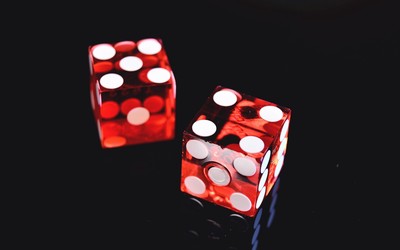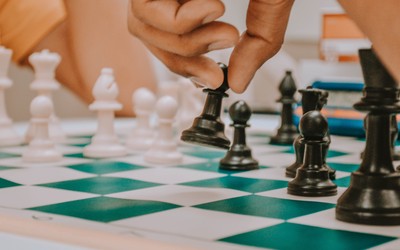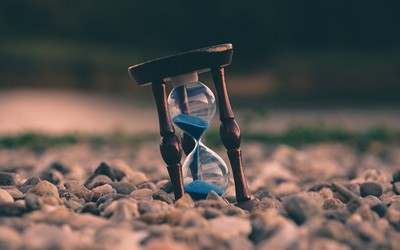
Lichess interface
Two Years In
Taking stock after two years of chess.It's been two years since I returned to chess and what a journey it's been. I've written a lot here about the challenges I've had, especially around anxiety and playing, and how I've addressed them. For this blog post, I thought I'd take stock of where I am after two years and what's currently working for me.
My local chess club
I finally joined my local chess club in the fall of 2022. The club restarted in the fall of 2021, but I waited almost a year before joining, just so that I would be comfortable with the health risk.
The club has ongoing tournaments with weekly games and hosts weekend tournaments every month or two. The tournament games are 90+30. It took a while to get used to playing in 3D (check out Transitioning to OTB Play if you're making the leap). It also took a while to get used to the time control. The games can go too long sometimes, but I really appreciate how much time I have to think about my moves.
I only started playing there regularly in November, but I've already played 18 games. It's an awesome experience that has definitely helped both my confidence and my abilities.
ChessDojo Training Program
I've taken a bit of step back from the Training Program. I still highly recommend it. I'm not leaving it anytime soon and I plan to renew for another year in May. It provides guided study recommendations and a community of improvers that can't be beat. However, as some in the program have noted (Hi, Chris!), I have a tendency to focus on the "meta" stuff as a way of avoiding focusing on the work I should actually be doing. When I have some serious deliverable at work, I'll probably also have the cleanest desk you've ever seen.
I'm still putting in the work, but I'm just not as engaged as I was on the Discord server. I've also replaced my irregularly scheduled online long games with a regular evening out at the local chess club. It's made planning my study sessions, and my week, much easier.
Coach JJ
I'm still being coached by JJ Lang of ChessFeels podcast fame. I was thrilled to hear that they got a part-time job with US Chess that quickly turned into a full-time job. It's nice to see people have their chess dreams come true, especially someone as deserving as JJ. While they're no longer taking new students, I've been able to continue meeting with them monthly for goal setting.
Current routine
With a regular evening game every week, I've been able to focus my studying on some basics: tactics, active reading, and analysis.
For tactics, I make sure to play Chess.com Puzzle Rush in Survival mode at least once a day. Why? Because every time you play you have to go through the most basic puzzles first. I don't care if my puzzle rating is 2000 if I can't solve the 400-level puzzles every single time I see them. I'm trying to solidify my tactics floor as opposed to raising my tactics ceiling. I do survival mode because I don't care how much time it takes. I'm training for classical chess not bullet and accuracy is more important than speed (within reasonable limits). I take as much time as I need to ensure that the move I'm making is the right one, even for the most obvious moves in the lowest-rated puzzles. I use Puzzle Rush because of Chess.com's Real 3D board, but If you very reasonably don't want to pay for Chess.com, Puzzle Streak on Lichess offers a similar experience for free. My other tactics training is continuing to work my way through the training program recommended puzzles in Chess: 5334 Problems, Combinations, and Games by László Polgár.
My deeper study is doing active reading with a chess board. I'm currently reading How to Reassess your Chess (4th edition): Chess Mastery through Chess Imbalances by Jeremy Silman and I have lots of books lined up to follow. While Reassess Your Chess is a training program recommended book, it's recommended for a rating band far above mine. However, my OTB play has made it clear to JJ and me that I'm not blundering my pieces as much as making ill-advised moves that create long-term weaknesses. I love sitting down with a chess book and a small travel chess board and playing out the games and positions. Reassess your Chess seems like the sort of book that I'll be able to come back to every few years and learn more each time I go through it.
Finally, I'm making sure to analyze all my long games, which is a core training program activity. I do mine slightly differently though. The recommended way is to write down what you were thinking during the game immediately afterwards and then do a full, deep analysis as soon as you have enough time. What I do instead is let the games sit for a while and then do several quickly in a sitting. I did this by accident the first time, but it turned out to really work for me. I really don't care what I was thinking during the game. Some of my analysis notes are literally, "I have no idea why I made this move." I care more about what I should have been thinking and what lines I should have been considering. Doing the games in a bunch allows me to see patterns in my mistakes. Doing the games quickly keeps the analysis at a depth that I'm likely to remember at my level. There's no point in going deep into analysis if you won't remember the point of it when you're at the board.
Thanks
Huge thanks to JJ, Chess von Doom, and Ono for helping me through my first two years of chess. Thanks to the ChessDojo Training program for providing me structure and to Angry, Chris, Zor, Safuya, Dave, and Hokie for all their support.
More blog posts by MatthewKCanada

There is definitely luck in chess
Sometimes you play well. Sometimes you're lucky.
And Now for Something Completely Different
Changing how I approach chess
Transitioning to OTB Play
Some tips on transferring your online skills to OTB play
